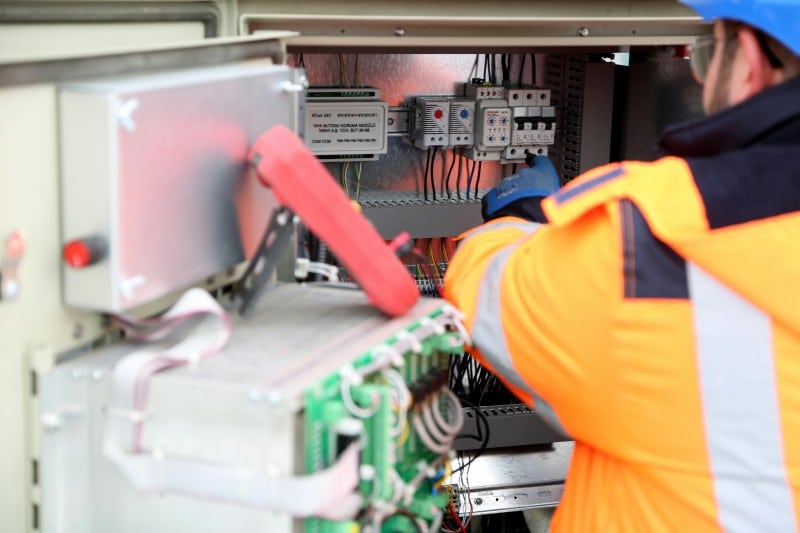Do you ever glance up at those massive overhead powerlines and wonder who’s responsible for installing or maintaining them? The answer might surprise you because, just like there are specialists in building and plumbing, the electrical trade is also divided into key fields -residential, industrial, and commercial.
Each area demands its own unique training, tools, and experience. Whether it’s rewiring a home, powering an office block, or maintaining a wind farm, different electricians handle different types of work. So, if you’ve been searching for a commercial electrician for your office fit-out, it helps to understand how their role differs from others in the industry.
Here’s a quick overview of the differences between the three specialities of electricians.
Industrial Electricians
Industrial electricians deal with some of the most complex and high-powered systems in the electrical trade. They often maintain and install large-scale infrastructure like overhead street lighting, power distribution networks, substation equipment, and even wind and solar farms.
Their work often involves high-voltage systems and a detailed understanding of how to keep them safe and stable under pressure. These electricians work in conditions that can be hazardous without the right expertise, for example, up high on poles, deep inside power plants, or out on remote industrial sites. Their work is vital to keeping the lights on across entire regions, and their training reflects the gravity of those responsibilities.
Residential Electricians
Residential electricians are most familiar to homeowners as they install and maintain the electrical systems in houses, townhouses, and small apartment blocks. From fitting new light switches and power points to wiring up entire homes for electricity, internet, and smart devices, their work directly impacts your daily life.
They often operate alone or in small teams and work closely with builders during home construction or renovations. Safety is always a key focus, especially in older homes that might require rewiring to meet modern standards. They also help with troubleshooting and emergency callouts for power loss, tripped circuits, or faulty appliances.
Commercial Electricians
Commercial electricians sit somewhere between industrial and residential specialists. They work primarily on commercial buildings such as shopping centres, office towers, schools, medical facilities, and entertainment venues.
In these environments, the electrical needs are typically more extensive than in a standard home but not quite as heavy-duty as in industrial settings. For instance, in high-rise buildings, electricians ensure that electrical loads are properly divided and allocated to each unit or floor. This involves setting up complex switchboards, safety systems, backup power, and managing automated controls like lighting sensors and climate systems.
Commercial electricians also need to understand local regulations and safety standards, especially in public-facing spaces. Their projects are often long-term and require the ability to coordinate with architects, builders, and other contractors.
A Different Spark for Every Job
While all electricians share a foundation of knowledge in how power flows and systems connect, the environments they work in shape their specialisations. Industrial electricians operate in large-scale, high-risk settings, residential electricians bring comfort and functionality to your home with reliable, safe setups, and commercial electricians focus on complex buildings with shared systems and regulatory requirements. Understanding these differences helps you find the right expert for the job – whether that’s a flickering light in your kitchen or a full fit-out of a new business space.

